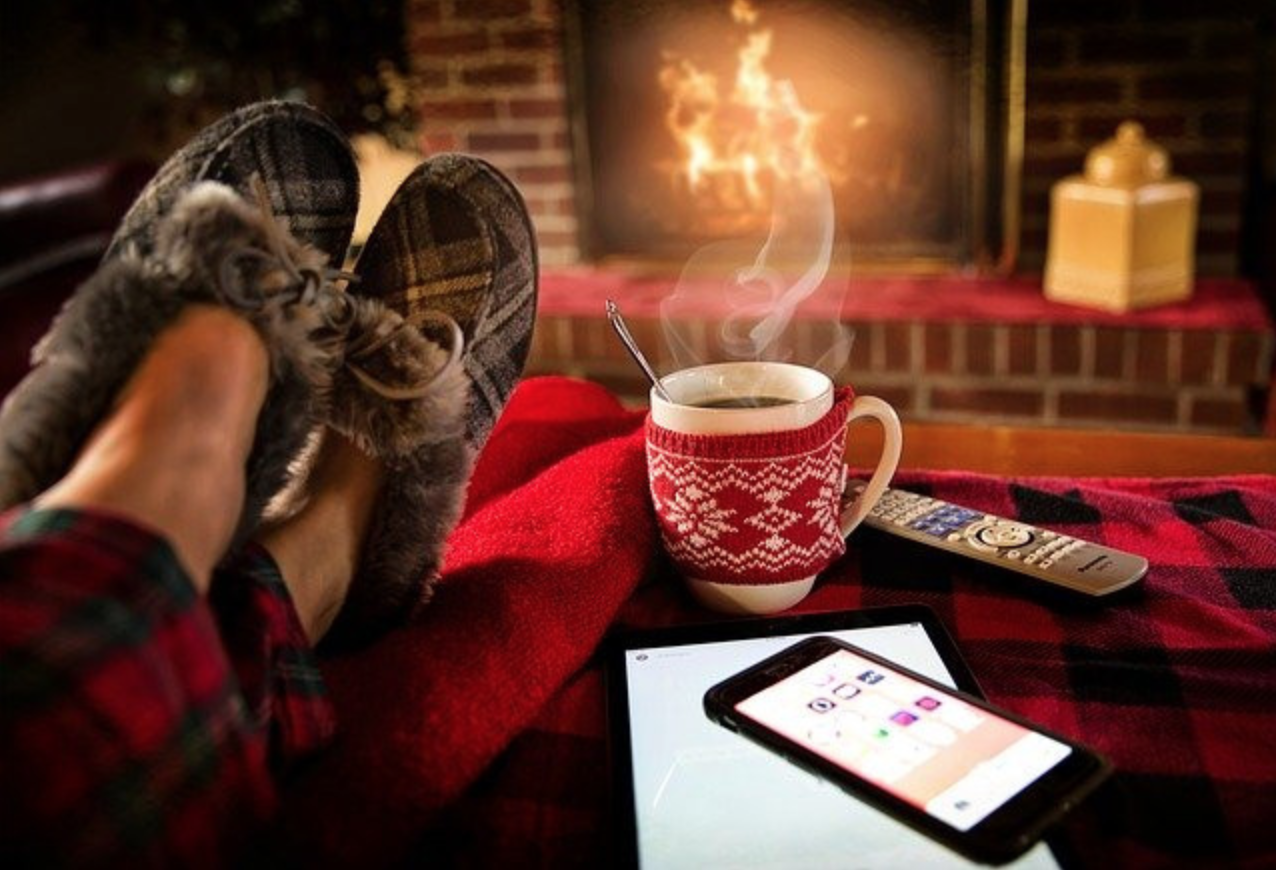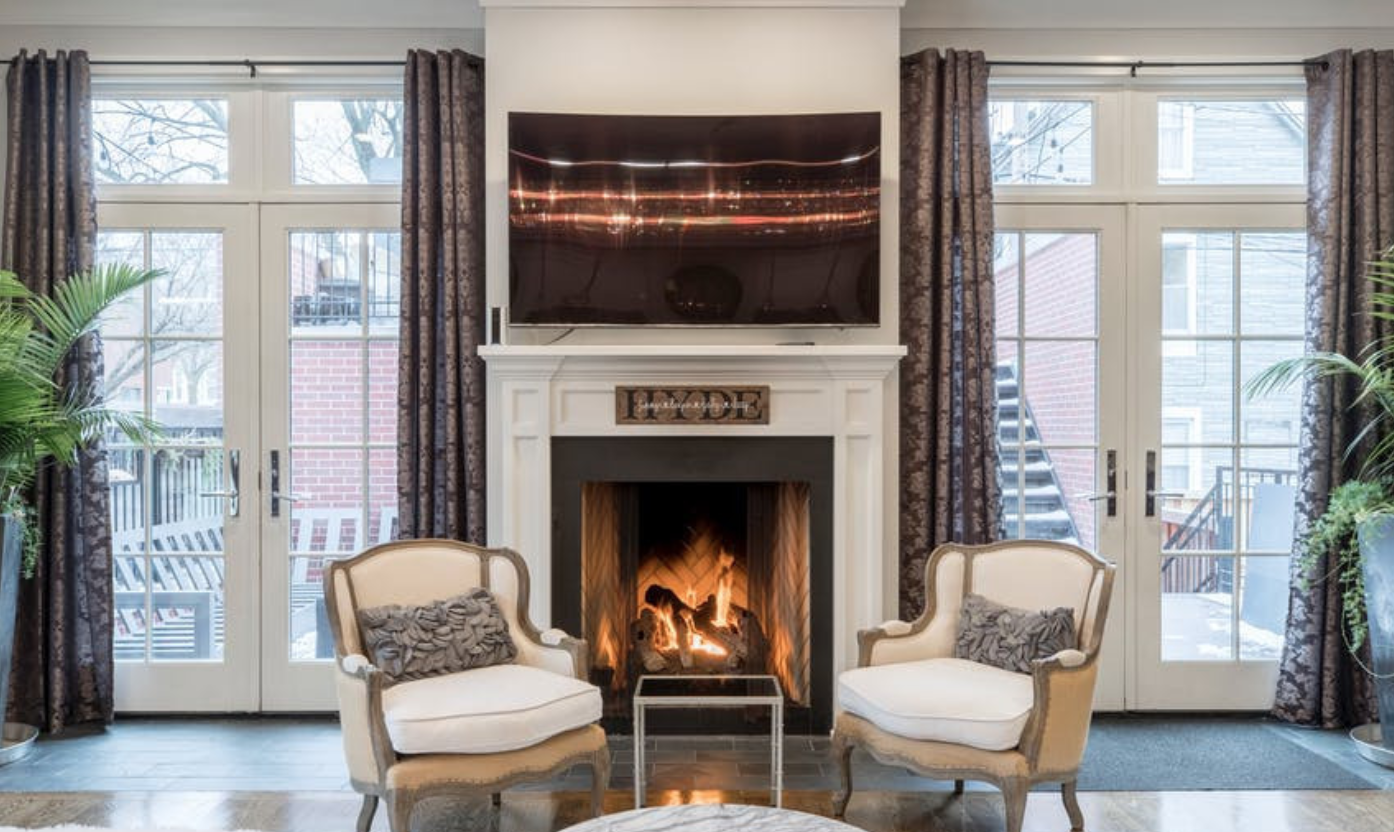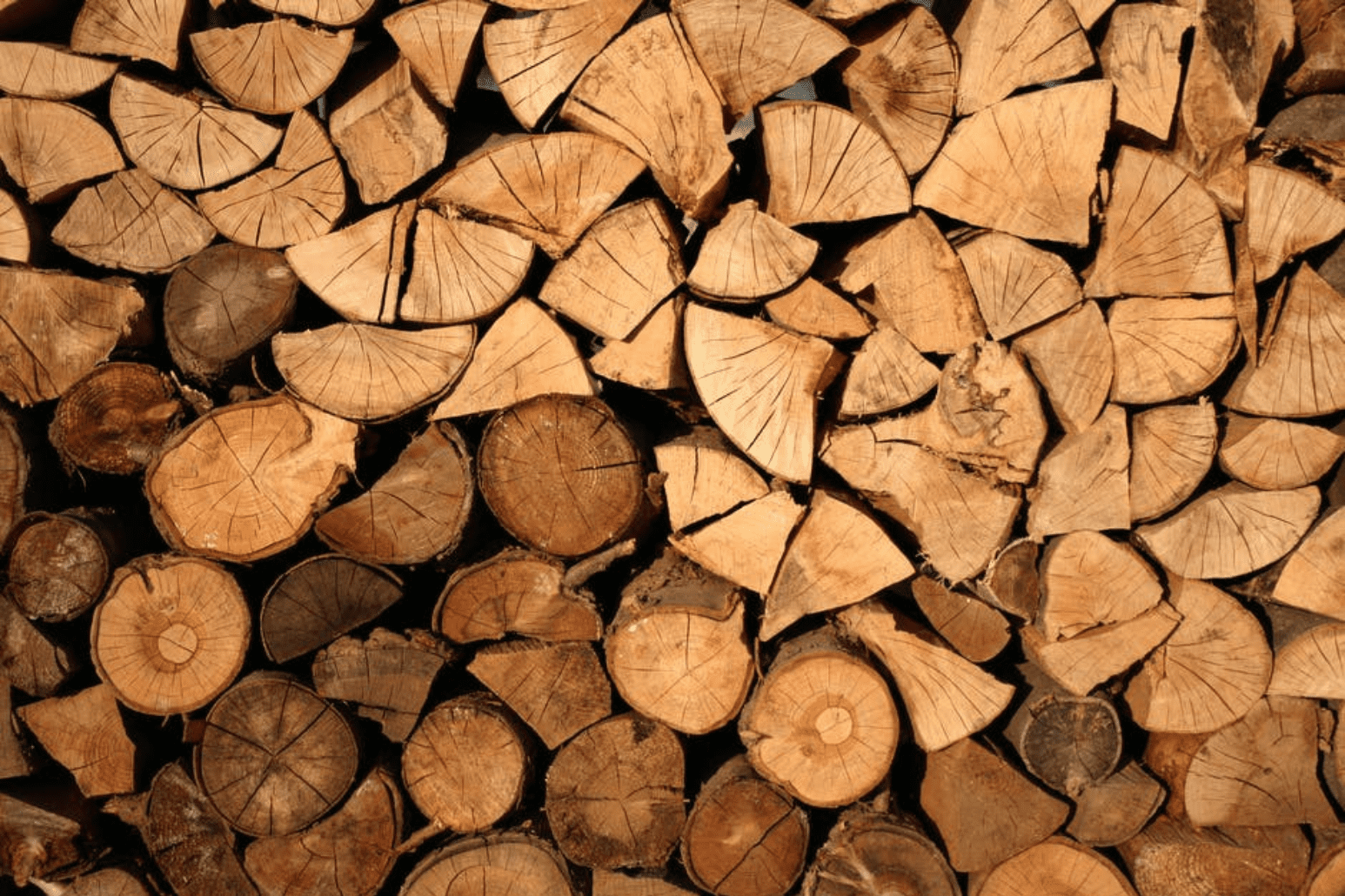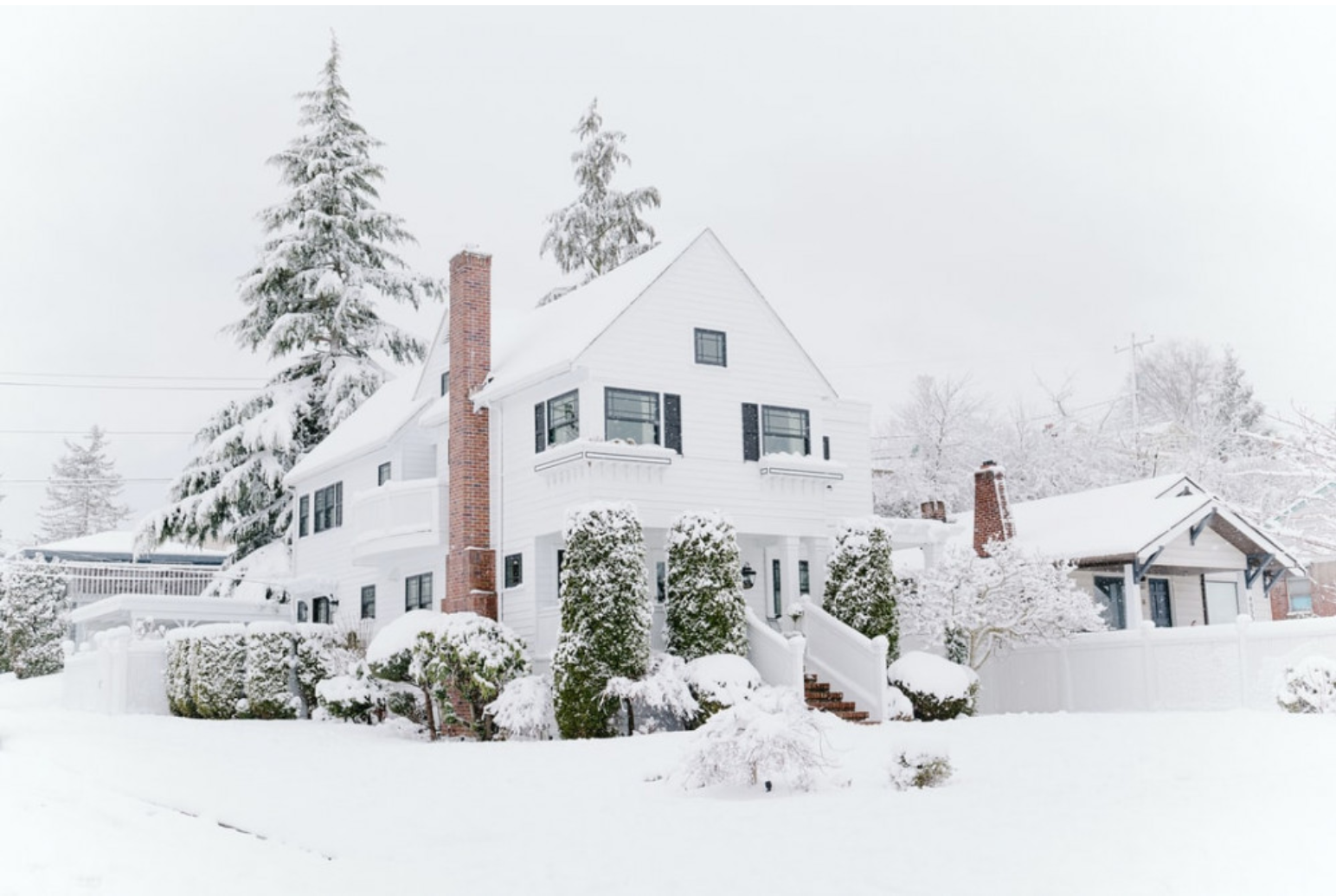If you have a fireplace, you should make sure your chimney is cleaned regularly. Don’t procrastinate and clean your wood-burning chimney or you could suffer severe consequences for you and your loved ones.
Not cleaning the chimney can cause blockage and build-up of toxic gases in your house. These gases can suffocate occupants or cause respiratory issues. A clogged chimney can also be a fire hazard and have other less dangerous consequences, like the accumulation of dust and dirt inside your house.
When we built our new house in Lewes, Delaware, my wife and I wanted a fireplace. Coming from Los Angeles County, where it was prohibited to burn wood in fireplaces, we thought it was great to have the choice to enjoy a wood-burning fireplace now and then.
We asked our builder why most of our neighbors didn’t build one for their homes. He said that most people don’t want the hassle of having to maintain a fireplace and chimney. And this is why I ask what happens if you don’t clean your chimney?
We already had to think about how to safely mount a TV over our fireplace. In this blog post, I want to figure out the consequences of not cleaning my chimney.
Why Do I Have to Keep My Chimney Clean?
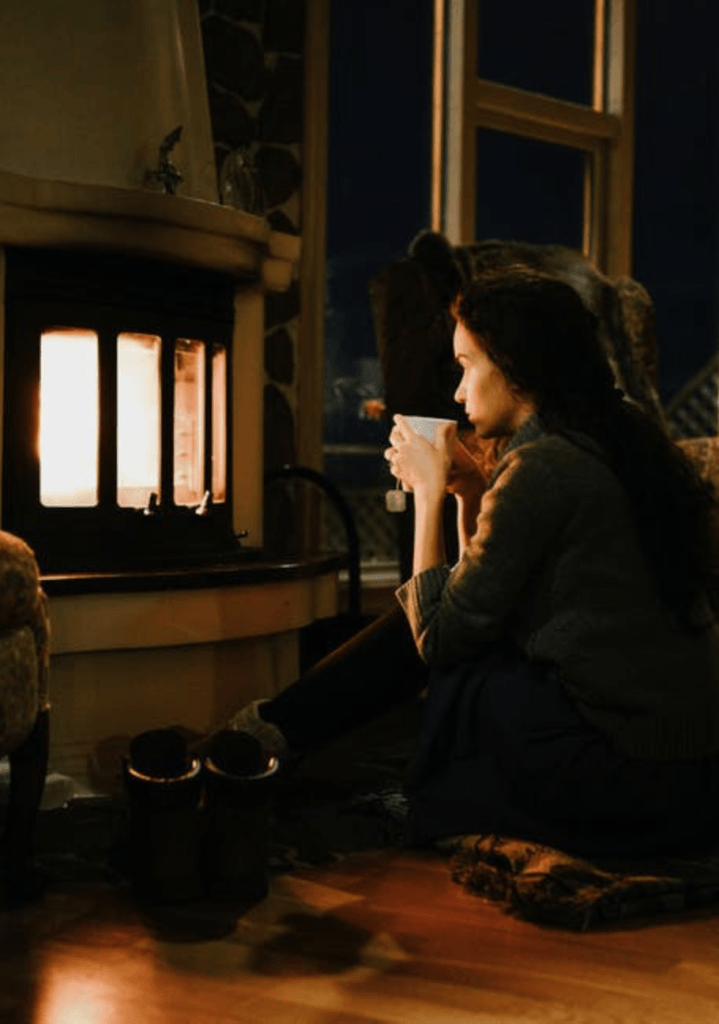
If your chimney gets clogged, it could have serious consequences. It is not a matter of aesthetics or cleanliness; it can be a health hazard.
The primary purpose of your chimney is to vent the by-products of combustion from your home. Creosote can build-up on the inner walls of your chimney. That build-up will eventually interfere with the chimney function, which is gas and smoke removal.
When there is a severe build-up, those gases can return inside your home and cause various respiratory problems. Carbon monoxide poisoning is one of the most severe issues that can occur. It can even lead to death.
In addition to health issues, creosote build-up can cause a chimney fire.
All of these issues have no obvious warning signs. The best way to prevent them is to learn how to maintain and clean your chimney and professional help when needed.
Some of the consequences of dirty chimneys are not dangerous, but will also affect your home’s enjoyment. A dirty chimney may cause bad smell in the house, especially during summer. Dust and dark residue can also enter your house and stain it.
You may also end up with snow and water getting into the chimney if you don’t inspect it and clean it periodically.
When Do I Inspect and Clean My Chimney?
The National Fire Protection Association says, “Chimneys, fireplaces, and vents shall be inspected at least once a year for soundness, freedom from deposits, and correct clearances. Cleaning, maintenance, and repairs shall be done if necessary.”
Heavily used chimneys may have to be inspected and cleaned more often.
In some areas, chimneys are attractive to wild birds, which sometimes make nests on top. As lovely as that is, after the birds are gone, you should inspect the chimney for branches, feathers, and dirt that can fall in and cause a blockage.
You may be able to recognize a dirty chimney by looking at the sooty residue inside. If it is 1/8 inches thick, it is time to remove it. If you notice any glaze, you may have to clean it sooner.
The best time to clean your chimney is after winter when most people stop using it—waiting for the next heating season and cleaning before winter is not advisable. Weather can be unpredictable, and before you know it, you will be using it, and you may decide to procrastinate or overlook this critical task.
How Do I Inspect and Clean My Chimney?
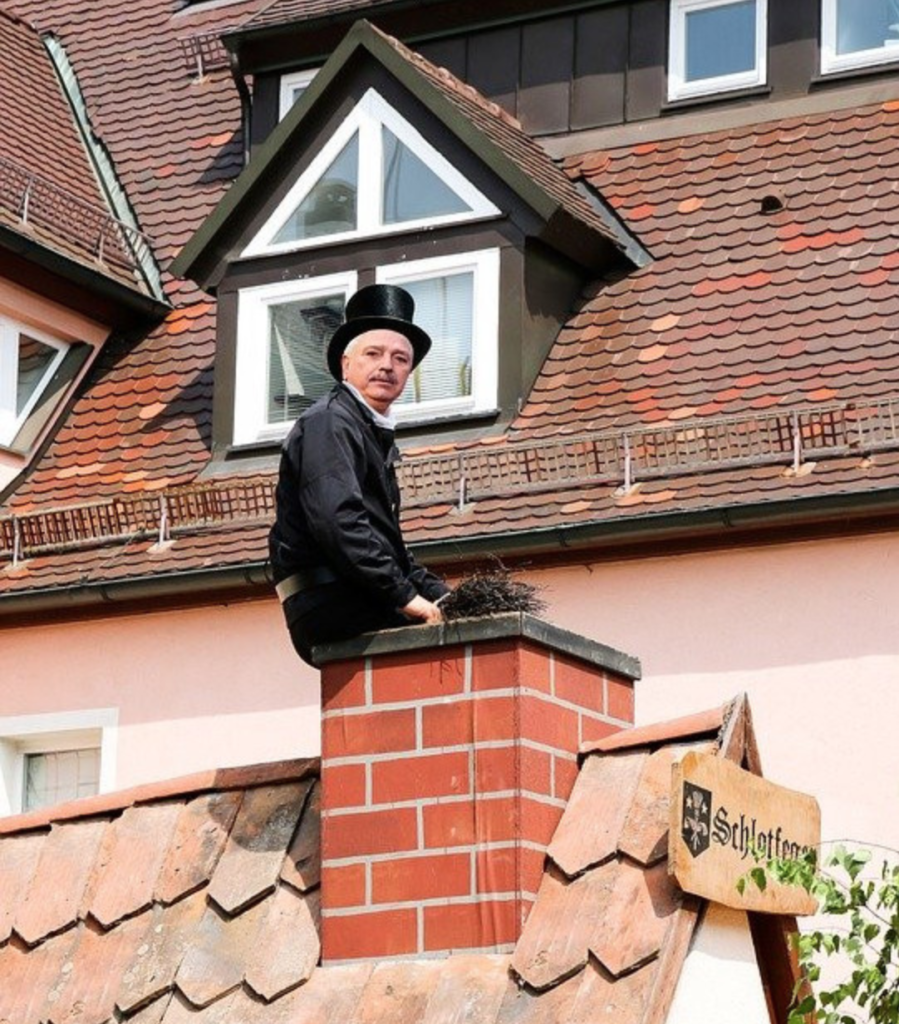
Correctly cleaning a chimney includes thorough sweeping from the house, through the fireplace, and from the roof, to reach all the chimney parts.
There are “brushes” made, especially for that purpose, and they can be purchased in every well-equipped hardware store. You will also need hand and eye protection, vacuum cleaner, and possibly other tools. The cleaning process can be dangerous as it includes maneuvering on the roof.
The typical homeowner does not have the skillset and tools to clean his/her chimney correctly. For peace of mind, it is recommended to hire a professional chimney cleaning company.
Signs That My Chimney May Need Cleaning?
Before focusing on signs, there are certain situations when cleaning is necessary no matter what.
One of those is if you purchased a new property. You can never be sure that previous tenants kept it clean.
Another situation when cleaning is mandatory is if you haven’t use the fireplace for a long time. It is better to be safe than sorry.
If you have cleaned it after winter, inspect it before next winter to be sure there are no obstructions.
Some of the most common signs that your chimney needs cleaning are:
- If you can smell the smoke inside your house when you use the fireplace
- Black residue occurring around the fireplace
- Fire is not as intense as usual
- Residue peeling from the inner chimney walls
- Visible obstructions in the chimney (usually occurring after nesting birds)
If you notice any of these signs, make sure you clean the chimney or call a professional as soon as possible. You can avoid all this if you install an electric fireplace instead.
I have created a quick video to highlight this section. If you like this video, consider subscribing to the House Notebook Youtube Channel.
What if I Use a Gas Chimney?
If you use a gas chimney, it also must be regularly checked. Some people think that it is unnecessary as the gas is clean and smokeless. Gas burns much cleaner than wood, but chimneys can also become non-functional due to the accumulation of other materials such as leaves, branches, dirt, or similar. And if your chimney gets clogged, you may suffer the same dangerous consequences.
Cleaning your gas chimney annually by a professional will give you peace of mind while enjoying your fireplace.
What About Chemical Chimney Cleaners?
There are specific chemical agents available on the market, used for chimney cleaning. They may seem easy to use, hassle-free, and a safe alternative to cleaning the chimney the old fashion way.
Unfortunately, it is not that simple. Those chemicals are not enough to clean the chimney and prevent build-up. If you wish to use them, consult a professional. When those chemicals are applied, they are usually used together with standard mechanical cleaning methods.
What Can I Do to Keep the Chimney Clean While Using the Fireplace?
There are a few things you can do to slow down the creosote build-up.
- Use the fireplace less frequently. All things being equal, the less often you use your fireplace, the less creosote will be created.
- Use harder wood. Using the right wood for your fire is more an art than a science, and I have a lot to learn about this. Oak, birch, and ash are examples of trees that take longer to burn and produce less smoke. As a result, they will produce less creosote than softwoods like fir, pine, or cedar. You need to keep this in mind when you wonder, where can I get free firewood?
- Do not burn any other materials except wood.
- Clean the interior of your fireplace. Keeping your fireplace free of dirt, dust, and ash will help minimize the build-up of creosote.
How Much Does It Cost to Inspect and Clean My Chimney
According to HomeAdvisor and Angieslist, the price range of chimney sweep in the USA is from $125 to $350. This range assumes there has been regular maintenance, and there is no major issue found. Most companies offer inspection as part of their cleaning cost. So, I would expect the price range includes inspection.
House Maintenance To-Do List
I like to identify repetitive tasks that need to be done to maintain our house. I add these items to the House Calendar so that I don’t forget to complete them. This is the item I have added:
- Inspect and clean chimney: Annually
Closing Words
After a hard day of work, you should be able to indulge in a glass of wine by your wood-burning fireplace. But continuous risk-free enjoyment of your fireplace comes with some responsibilities. You should be able to accomplish this if you regularly inspect and clean your chimney.
Related Posts:
